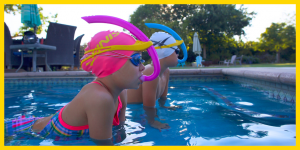Elizabeth Wickham, SwimSwam
November 14, 2019
One of the most exciting moments in swim meets is watching your child compete on a relay. Win or lose, there’s so much energy, cheering and exhilaration. Your kid’s relay, coming from behind and touching out another team, will be a highlight of your swim family memories.
What’s not to like about relays? Unfortunately, there can be some negatives. The main issue is drama over who is on the relay and who is not. I’ve seen parents change teams because their child wasn’t selected for a relay they usually swam on. They didn’t realize that another swimmer got faster and that relay selections change — it’s not a permanent position. Another swimmer quit high school swim because she was left off a team she should have been on. Our family was upset when our son was a “relay only swimmer” at a big meet and families with kids on the
relays who had individual events, left before relays because it was no big deal to them.
Several coaches have told me they wish they could skip relays. Relays often score double points, so it’s not something that coaches will avoid, even if they’d like to. Besides, relays are fun and a great experience for our kids whether or not they’re on the A, B or C relay.
Here are a few thoughts for parents about relays:
ONE
Who gets to swim?
Coaches select swimmers for their relays based on many factors, but the number one consideration is the team. Generally, the four fastest swimmers who are most likely to score points for the team get selected for the A relay. Some coaches pick the four fastest swimmers
based on their personal best times. They also know that some swimmers really step it up for relays and may swim a few seconds faster for their team, then they do on individual events. They may also consider how swimmers are performing at a meet and will use their best judgement.
TWO
When your child isn’t on the relay
If your child isn’t on the team and you’re upset, before you complain to the coach try to find out the criteria for relay selection. Was it based on times alone? Was it due to a swimmer having too many events close to relays, so another swimmer was given a chance? Will complaining to the coach solve anything?
THREE
Who goes first?
The lead off swimmer gets an individual time so going first on a freestyle relay can be another point of contention. The coach makes the decision of the order of swimmers based on several factors. Is he setting up the relay, fastest to slowest? Or, are the fastest swimmers leading off and anchoring? Maybe the coach will use a relay to let a swimmer get another try at a cut at the next level.
FOUR
It’s all about the team
If your child didn’t make the relay this time, they can still be a part of the excitement by cheering on their teammates. Show good sportsmanship and understand that there will be many relays in the future and getting a spot may be motivating for your child. The team is what comes first when making relay selections.
What are your thoughts about how relays are selected? What experiences have you had with your child making or not making a relay?
Read the original article here
Recent Articles
Dylan Carter
Chelsea Hodges
Lorenzo Zazzeri

Introducing the Stability Snorkel Jr
Share on Social Media


